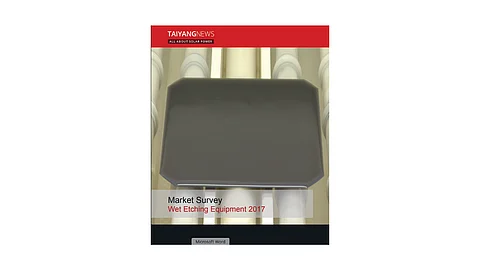

Wet-chemical solutions are used at various stations in the solar cell processing sequence. In fact, the very first process step in cell lines starts with a chemical treatment – saw damage removal and texturization. Wet beaches are also employed to remove the phosphorus silicate glass (PSG) as well as junction separation, commonly known as edge isolation.
While wet benches are part of every cell line, they also have an important role in processing advanced cell architectures like PERC, in which the edge isolation tools are tweaked with intensified chemistry to accomplish rear polishing. Heterojunction cells require ultra clean wafer surfaces, which again make wet-chemistry the perfect means for that purpose. Wet-benches also have an interesting emerging new application with huge business potential – black silicon texturization. The process is all about realizing a texturization on diamond wire sawn multicrystalline wafers, which do not respond to the standard texturization process.
The TaiyangNews Market Survey on Wet-Chemical Benches 2017 has received responses from 5 of the leading equipment suppliers in this field.
RCT Solutions, Germany
RENA Technologies GmbH, Germany
Schmid Group, Germany
SC New Energy Technology Corporation, China
Singulus Technologies AG, Germany
These 5 companies have provided data for 26 products in total, which are listed under 4 categories based on their applications:
Saw damage removal & texturing
Black silicon texturing
PSG etch & edge isolation
Cleaning
The TaiyangNews Market Survey on Wet-Chemical Benches 2017 can be download free of charge here.
